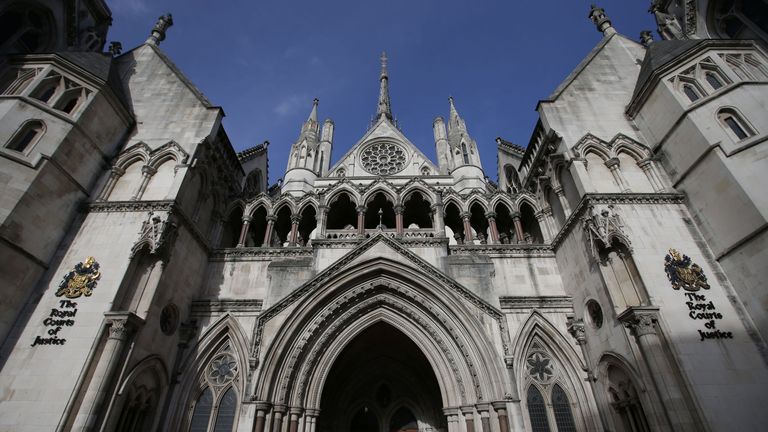Facial recognition can be legally used by police forces in the UK, judges have ruled.
As the world's first case against the controversial technology concluded, two leading judges dismissed the case brought by human rights campaign group Liberty on behalf of Ed Bridges, a Cardiff resident whose face was scanned by South Wales Police during a trial of facial recognition.
Lord Justice Haddon-Cave, sitting with Mr Justice Swift, concluded that South Wales Police's use of live facial recognition "met the requirements of the Human Rights Act".
In a three-day hearing in May, Mr Bridges' lawyers had argued that South Wales Police violated his human right to privacy by capturing and processing an image taken of him in public.
The judges also ruled that existing data protection law offered sufficient safeguards for members of the public whose faces were scanned by facial recognition cameras, and that South Wales Police had considered the implications.
Advertisement
Speaking in the High Court, Lord Justice Haddon-Cave said "the current legal regime is adequate to ensure the appropriate and non-arbitrary use of AFR Locate" – the facial recognition technology used by South Wales Police.
Liberty lawyer Megan Goulding said: "This disappointing judgment does not reflect the very serious threat that facial recognition poses to our rights and freedoms.
More from Science & Tech
"Facial recognition is a highly intrusive surveillance technology that allows the police to monitor and track us all.
"It is time that the government recognised the danger this dystopian technology presents to our democratic values and banned its use. Facial recognition has no place on our streets."

Live facial recognition works by scanning every face in a crowd and comparing them to images of wanted individuals on a watch list.
Police say the technology is needed to combat serious crimes, such as terrorism, without putting an impossible strain on police resources.
Civil lRead More – Source





